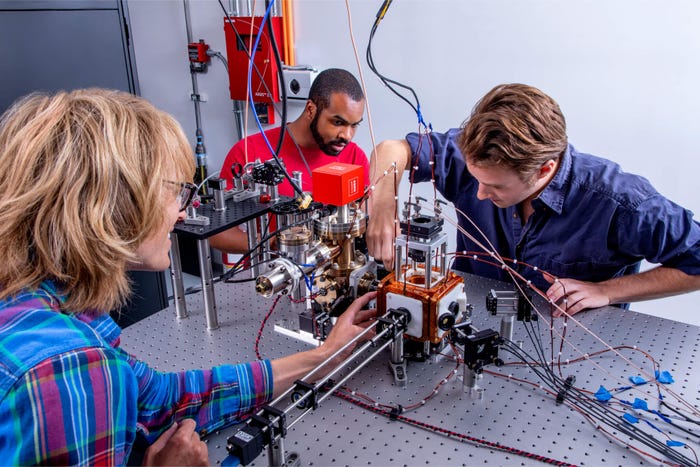
Connects decision-makers and solutions creators to what's next in quantum computing
Quantum Optimization Improves Mobile Network Performance by 15%Quantum Optimization Improves Mobile Network Performance by 15%
NTT Docomo, D-Wave project demonstrates reduction in network signal congestion

D-Wave Quantum and Japan’s largest cellphone operator NTT Docomo have announced that a quantum optimization pilot resulted in measurable mobile network performance improvements.
The companies used D-Wave’s annealing quantum computing product as part of a hybrid quantum solution to reduce congestion at base stations in the Tokai, Chugoku and Kyushu regions.
They found the technology decreased paging signals during peak calling times by 15% compared with classical methods, which could help make future infrastructure more efficient and cheaper.
The team used D-Wave’s hybrid-quantum technology to optimize the small geographical regions that the base station tracks. These send paging signals and process extensive historical data on device movements between stations, which Docomo uses to predict future movement patterns.
This data determines the best combination of base stations to re-establish connections as devices move between tracking areas.
D-Wave’s hybrid solver completed the task in 40 seconds, compared with a general-purpose classical solver that took 27 hours. It also led to a 15% reduction in paging signals, allowing approximately 1.2 times more terminals to be connected when call volume is high.
This reduction opens more bandwidth at the base stations, reducing congestion and avoiding the need to upgrade infrastructure.
“We anticipate that our quantum optimization strategy will further refine network efficiency, allowing us to maintain high-quality service without additional infrastructure investments as network traffic increases,” said NTT Docomo director of research and development strategy Takatoshi Okagawa.
“With D-Wave’s hybrid quantum technology, we aim to set a new standard in the telecommunications industry for operational performance.”
Docomo plans to roll out the hybrid-quantum technology across its Japanese branch offices in coming months. The company is also investigating opportunities to apply quantum optimization in other business areas including finance, retail, traffic and logistics and construction.
“Telcos are faced with a slew of increasing operational complexities — from 5G implementation to ever-shifting consumer demands — and need novel solutions to maintain a competitive edge,” said D-Wave CEO Alan Baratz.
“Docomo’s successful pilot sends a clear signal — that today’s quantum technologies are capable of solving telcos’ complex optimization problems, with the potential to elevate customer satisfaction, maintain network performance and mitigate rising infrastructure costs.”
Read more about:
AsiaAbout the Author
You May Also Like






